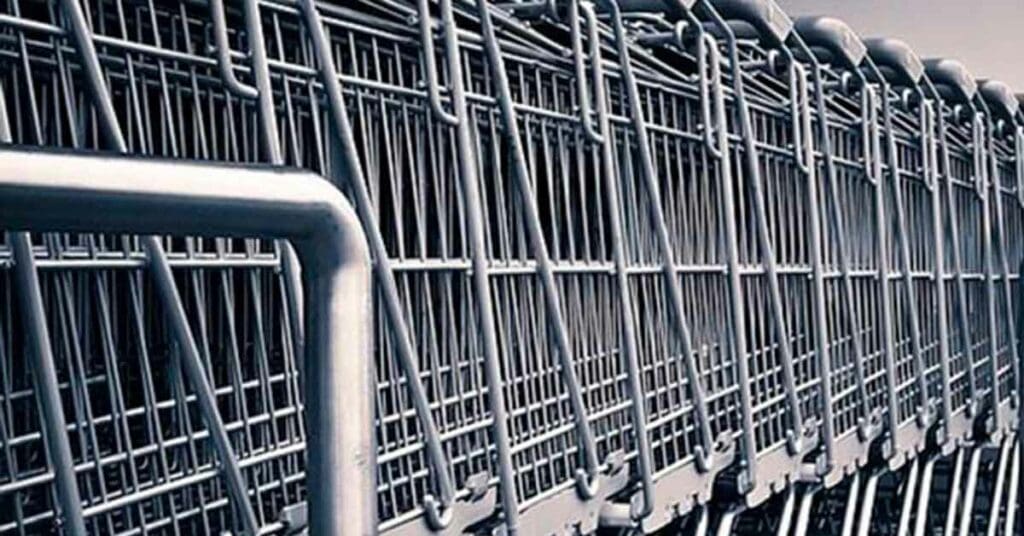 Canada’s Competition Bureau has decided to investigate the Canadian food industry, specifically our grocery sector. Better late than never, I suppose.
Canada’s Competition Bureau has decided to investigate the Canadian food industry, specifically our grocery sector. Better late than never, I suppose.
For years, many called for such an investigation while recognizing that the Bureau has little authority or power over anything. Even its new director admitted to the problem of powerlessness. For instance, the Bureau can’t force any company to submit any body of evidence for the upcoming study.
It’s sad that the Bureau waited until food inflation became a political hot potato to call for an investigation.
But make no mistake: this study is all about the Bureau, nothing more. It needs a different approach and a new perspective on things and clearly requires more knowledge about the food industry. When evaluating mergers and acquisitions, the food industry deserves a longitudinal analysis – observing the same participants over a period of time – to better appreciate how consolidation can impact sectors over time, as we’ve seen in groceries and processing. Limited competition can work if independents and smaller players remain somewhat sheltered from overbearing market forces. Miscalculated compromises can only lead to regulators overlooking our market’s most fundamental element, the consumer.
 |
| Related Stories |
| Are grocers still colluding over food prices?
|
| Loblaw to freeze food prices until January 2023
|
| Canadians getting desperate about higher food prices |
Consumers in many cities now have only one grocer, with fewer in-store choices due to the continuous pressure imposed on food processors, especially smaller operators. Many have given up. Unlike other industries, food manufacturers must pay grocers to do business with them. Listing fees, marketing costs, and the list goes on – a foreign concept for people who may not understand the economics of food distribution.
Canadians should not expect significant changes to the industry coming from the study anytime soon. For years, the Bureau has rubber-stamped deals and investigated accusations of collusion countless times, with limited success. Chocolate, salmon, and of course, bread are some examples. That needs to change.
Consumers were insulted in 2017 when Canadians learned about Loblaws’ bread price-fixing scheme – an ethical blunder by our country’s number one grocer. When it offered $25 gift cards as compensation, everything seemed forgotten and forgiven. Not quite. With higher food prices, the bread price-fixing scandal rapidly became a moral issue for Canadians.
The bread price-fixing investigation actually started in 2015 when Loblaws admitted its wrongdoing. For 14 years, from 2001 to 2015, it, along with Weston Bakeries, owned by Weston Companies at the time, admitted to fixing bread prices in Canada. The scheme allegedly included five more companies; all denied involvement. After seven years, we still haven’t seen anyone being accused or fined. Competition laws prohibit collusion, and companies can receive fines of up to $25 million and 14 years in prison. But without a watchdog watching, the Bureau has a lot of unfinished business.
Canadians are violently voicing their frustration, singling out grocers, mainly Loblaws, as the inflation boogeymen. The evidence of profiteering is weak at best, but it doesn’t matter. Even reporters from other countries couldn’t believe the backlash against Loblaws when it opted to freeze prices last week for its No Name products. Loblaws is arguably the most hated grocer in the world.
This is no accident. Canadians have an awkward relationship with grocers for one simple reason – many feel unprotected and left hanging high and dry. Because the Bureau is idle on so many fronts, Canadians have been left to take matters into their own hands, and who can blame them?
It’s different in the United Sta; it can take just a few months between lawmakers accusing food companies and getting them to write cheques to consumers. This happened in the case of JBS, the meat packer, which paid US$52.5 million to settle a price-fixing lawsuit. U.S. lawmakers are also pushing back on the $24.6 billion U.S. Kroger-Albertson deal, arguing it would create a monster of a grocer with a 15 percent market share. The new company may be forced to let go of up to 375 stores and create a rival to get regulatory approval.
This would never happen in Canada under the current regime. And by the way, both Loblaws and Empire/Sobeys already have more than 15 percent of the Canadian market. The Bureau is sleepwalking through these deals.
The report should be complete by June 2023. Hopefully, the Bureau will give itself a road map for fundamental changes that will provide it with more authority to apply more rigour to any case presented before it. But before that, the Bureau will need to do some soul-searching.
Let’s call it like it is. Canadians deserve it.
Dr. Sylvain Charlebois is senior director of the agri-food analytics lab and a professor in food distribution and policy at Dalhousie University.
For interview requests, click here.
The opinions expressed by our columnists and contributors are theirs alone and do not inherently or expressly reflect the views of our publication.
© Troy Media
Troy Media is an editorial content provider to media outlets and its own hosted community news outlets across Canada.

